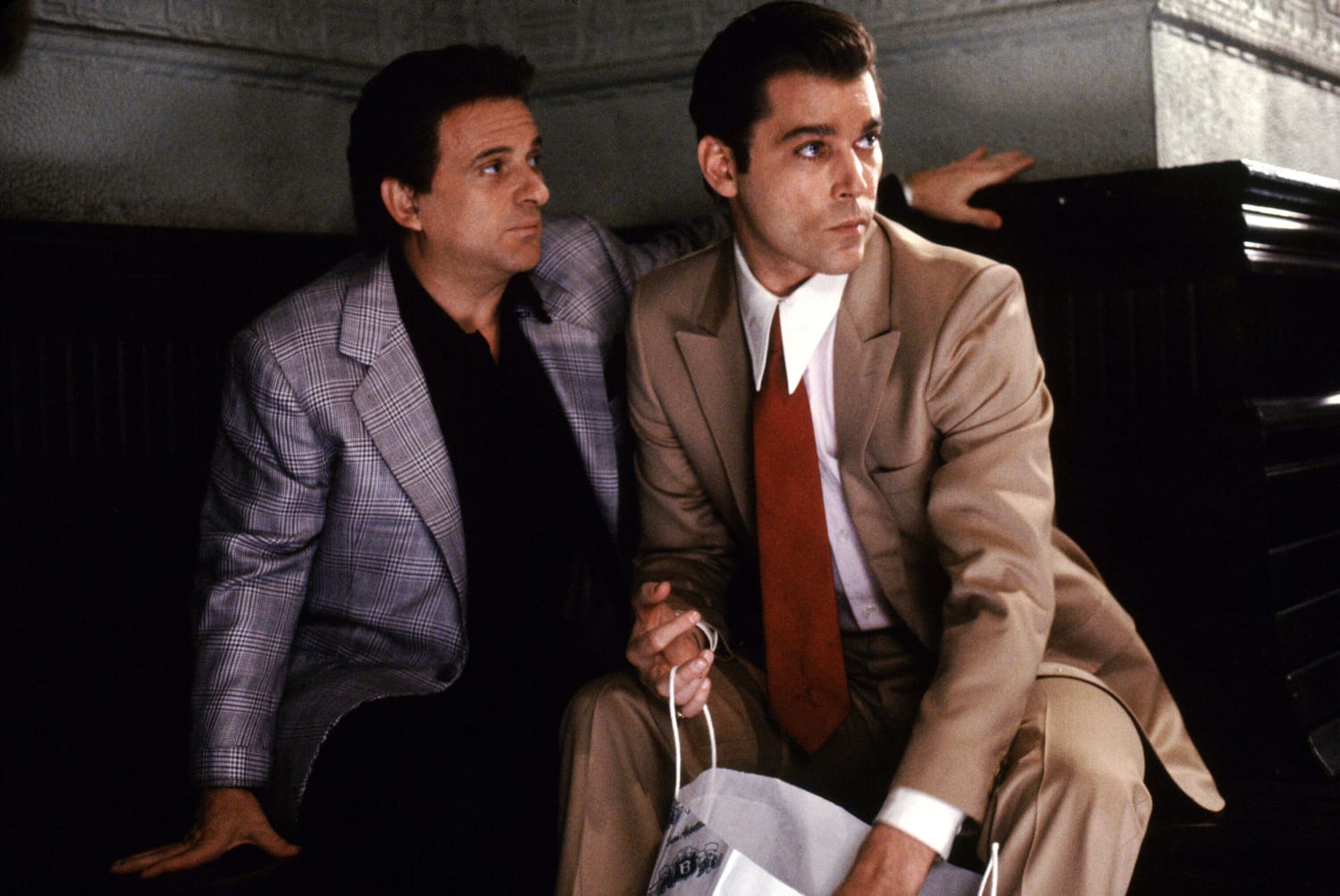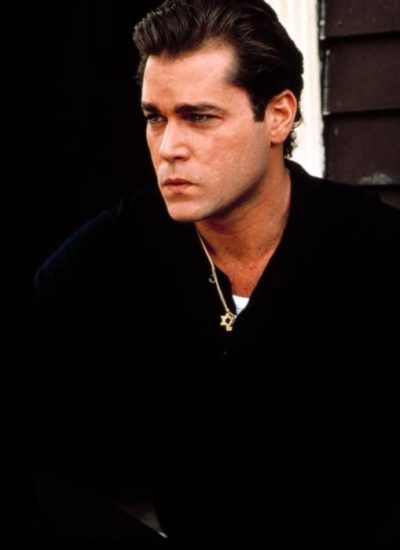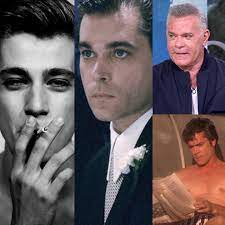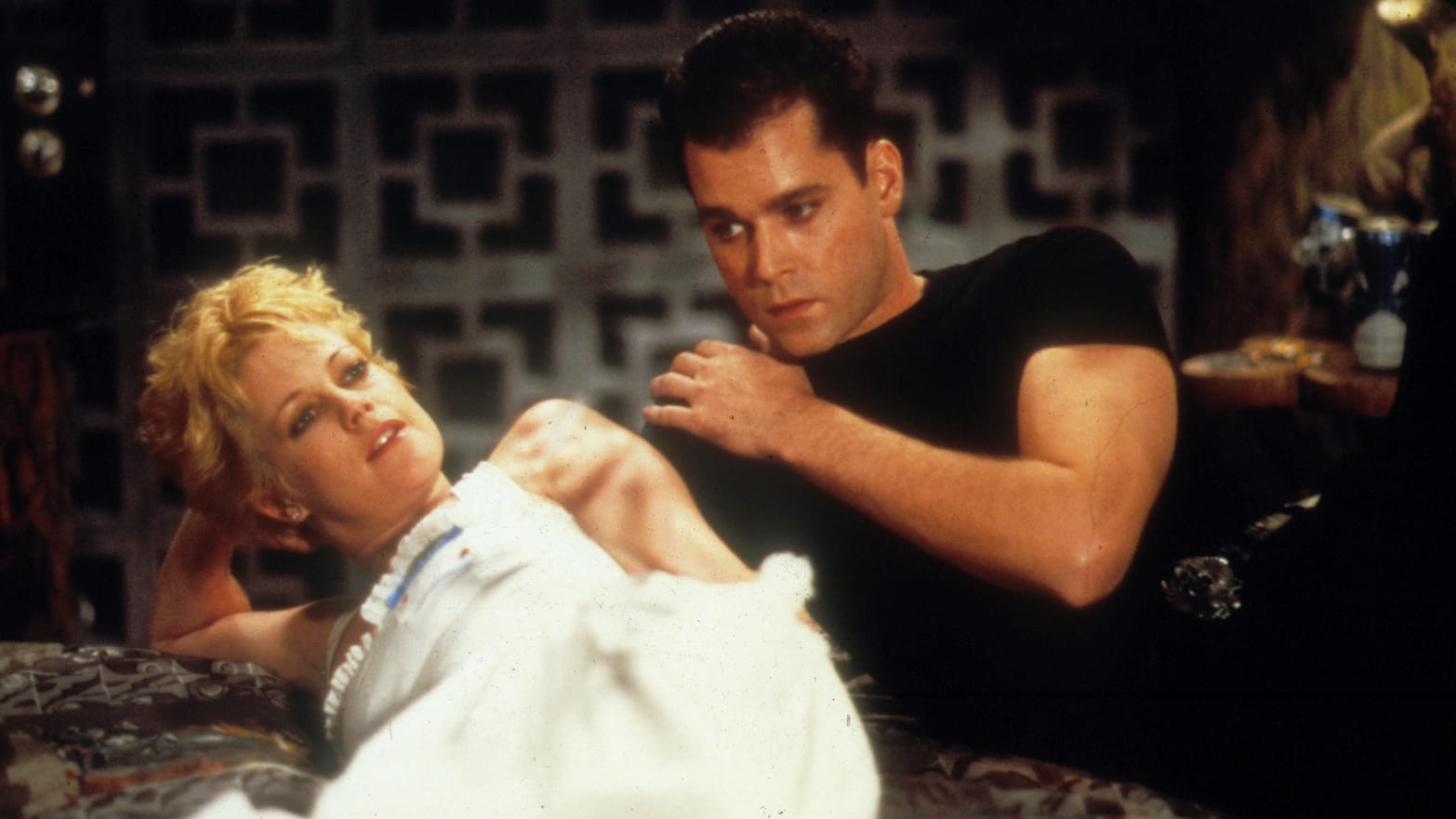 The May 26, 2022 demise of actor Ray Liotta has thrown one aspect of his career into extremely sharp relief. The late Robert Forster called it The Slide, in reference to what happened to his career when, after hitting an early pinnacle in high profilers like REFLECTIONS IN A GOLDEN EYE (1967) and MEDIUM COOL (1969), he found himself increasingly cast aside by Hollywood, and confined to grade-B fare like VIGILANTE (1972) and MANIAC COP 3 (1992). Liotta’s career underwent a similar trajectory, with early success followed by lot of undistinguished supporting work and plain bad movies.
The May 26, 2022 demise of actor Ray Liotta has thrown one aspect of his career into extremely sharp relief. The late Robert Forster called it The Slide, in reference to what happened to his career when, after hitting an early pinnacle in high profilers like REFLECTIONS IN A GOLDEN EYE (1967) and MEDIUM COOL (1969), he found himself increasingly cast aside by Hollywood, and confined to grade-B fare like VIGILANTE (1972) and MANIAC COP 3 (1992). Liotta’s career underwent a similar trajectory, with early success followed by lot of undistinguished supporting work and plain bad movies.
The late Robert Forster called it The Slide, in reference to what happened to his career…
You wouldn’t know this from the plaudits that have appeared since his passing. “A sweet, playful and passionate collaborator,” “dangerous, unpredictable, hilarious,” and “a true legend” are among the superlatives, from names like Robert De Niro, Kevin Costner and Jennifer Lopez, while Liotta’s New Jersey hometown Union Township has proposed naming a baseball field after him in honor of his role in FIELD OF DREAMS (1989). I don’t disagree with any of this, as Liotta was unquestionably one of the great actors of his generation.

Don’t believe me? Check out his breakthrough role in Jonathan Demme’s SOMETHING WILD (1986), where Liotta played a dangerous yet extremely charismatic psychopath, and handily stole the film from its stars Jeff Daniels and Melanie Griffith. The character’s name? Ray, which was appropriate, as it served to typecast Liotta for the remainder of his career.
 Dark-hued, and perhaps even questionable, was the word for the guy he played in Robert M. Young’s DOMINIC AND EUGENE (1988), the street-smart inverse of the same year’s RAINMAN, with Liotta’s sharp-edged Dominick serving as the Tom Cruise to Tom Hulce’s mentally challenged Eugene, the Dustin Hoffman role. Liotta’s take on Henry Hill, the conflicted protagonist of GOODFELLAS (1990), was likewise quite edgy, conveying a (somewhat) morally upstanding individual who loved the gangster lifestyle a bit too much. Even Liotta’s portrayal of an undead Shoeless Joe Jackson in FIELD OF DREAMS existed on the shadowy side of the street.
Dark-hued, and perhaps even questionable, was the word for the guy he played in Robert M. Young’s DOMINIC AND EUGENE (1988), the street-smart inverse of the same year’s RAINMAN, with Liotta’s sharp-edged Dominick serving as the Tom Cruise to Tom Hulce’s mentally challenged Eugene, the Dustin Hoffman role. Liotta’s take on Henry Hill, the conflicted protagonist of GOODFELLAS (1990), was likewise quite edgy, conveying a (somewhat) morally upstanding individual who loved the gangster lifestyle a bit too much. Even Liotta’s portrayal of an undead Shoeless Joe Jackson in FIELD OF DREAMS existed on the shadowy side of the street.
Outside those three flicks, however, I find myself hard-pressed to name any worthwhile Ray Liotta turns. He played lots more bad guys, certainly, but most of the movies they graced, which included UNLAWFUL ENTRY (1992), HANNIBAL and HEARTBREAKERS (both 2001), weren’t worthy of his efforts–and those films in which he attempted to play good guys, including NO ESCAPE (1994) and the evangelical production THE IDENTICAL (2014), weren’t any better.
Outside those three flicks, however, I find myself hard-pressed to name any worthwhile Ray Liotta turns.
For a long time I assumed Liotta’s career slide must have been due to unprofessional on-set behavior. It was for that reason fine actors like William Devane and Michael Nouri didn’t have the careers they should have, although that doesn’t appear to have been the case with Liotta, whose behavior on set and off was by all accounts impeccable.
Liotta made some bad choices, certainly.
Liotta made some bad choices, certainly. They include accepting roles in the aeronautical flop TURBULENCE (1997) and the Uwe Boll bummer IN THE NAME OF THE KING: A DUNGEON SIEGE TALE (2007), and turning down offers to appear in THE DEPARTED (2006) and THE SOPRANOS (although Liotta rectified the latter error by vigorously pursuing, and winning, a part in the 2021 SOPRANOS prequel film THE MANY SAINTS OF NEWARK). Ultimately, though, I think the blame for the Slide falls on the film industry as a whole, which treated Liotta as it does most actors good or bad: like a shiny new toy it quickly discarded.
Ultimately, though, I think the blame for the Slide falls on the film industry as a whole, which treated Liotta as it does most actors good or bad: like a shiny new toy it quickly discarded.
It’s to Liotta’s credit that he, who had a reported net worth of $14 million when he passed (a “relatively modest sum” according to one source), maintained a busy acting career. Liotta, let’s not forget, was known for approaching GOODFELLAS producer Irwin Winkler, who initially disagreed with his casting, in a Santa Monica restaurant and convincing him then and there that he was indeed the right guy for the role, and a similarly determined gist was evident throughout his life.
 The tragedy is that there was never a redeeming role a la Robert Forster’s Oscar Winning turn in JACKIE BROWN (1997), although had Liotta lived a bit longer I believe he would have gotten that redemption.
The tragedy is that there was never a redeeming role a la Robert Forster’s Oscar Winning turn in JACKIE BROWN (1997), although had Liotta lived a bit longer I believe he would have gotten that redemption.
At least there’s been some attempt on the part of Hollywood at making amends for their callous treatment of Ray Liotta. Martin Scorsese wrote a June 6 article for The Guardian in which he expressed regret for only directing Liotta once, admitting “We had many plans to work together again but the timing was always off, or the project wasn’t quite right.”
Still, given that Liotta’s final film roles were undistinguished (I haven’t seen BROKEN SOLDIER or HUBIE HALLOWEEN, but I strongly doubt they’ll ever be ranked with SOMETHING WILD or GOODFELLAS), and that he’s not around to read Scorsese’s essay, I’d say that acknowledgment is strictly a case of far too little, way too late.

